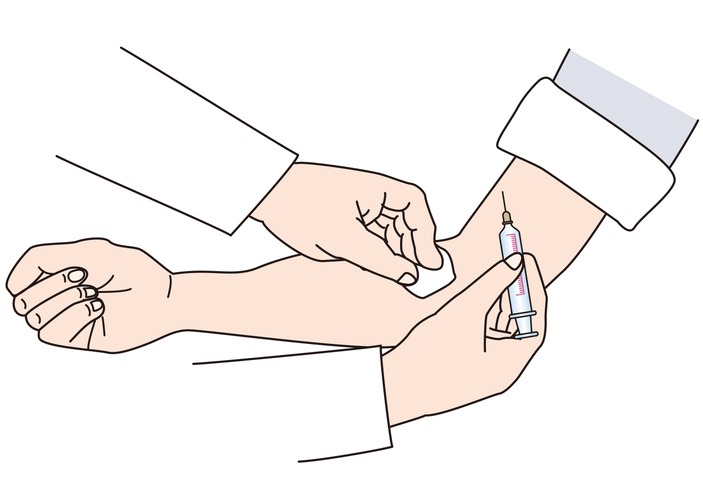
As reported by NHS England, the NHS begins a large-scale trial of a blood test that could revolutionise early lung cancer detection and treatment for thousands
The circulating tumour DNA (ctDNA) test, which will be offered to 10,000 patients by next March, can identify genetic variants in a tumour through a simple blood sample.
Patients that receive CT scan results showing suspected lung cancer will have a small blood sample sent to a genomic laboratory for ctDNA testing, with results returned in around 14 days.
Cancerous tumours often release pieces of DNA into the bloodstream (known as circulating tumour DNA) and these can be sampled using a ctDNA blood test to identify key genetic drivers of tumours.
Currently, tissue biopsies are used to confirm a diagnosis of lung cancer and samples can then be sent for genomic testing – but this new test could provide patients with these results faster, meaning they could start targeted treatment sooner.
The move from NHS England follows a smaller initial pilot which saw more than 2,000 patients referred for the service from 80 trusts across England.
The pilot is now set to be rolled out to provide the test for up to a further 10,000 patients with suspected non-small cell lung cancer by next March – and could involve most trusts across the country.
This is just the latest innovation in cancer care on the NHS – earlier this month, the NHS rolled out a new immunotherapy for hundreds of women with advanced endometrial cancer and, last August, a world-first cancer jab that cuts treatment time by 75% to as little as 7 minutes.
Lung cancer is one of the most common cancers, and around 34,000 people are diagnosed with it every year in England. Non-small-cell lung cancer is the most common lung cancer, accounting for around 80 to 85% of cases.
Kat Robinson, a 33-year-old from Dorset, was diagnosed with stage 4 non-small cell lung cancer in September 2023. Thanks to the ctDNA pilot at Poole Hospital which Kat took part in, clinicians confirmed that her cancer was being driven by two genetic mutations known as ALK fusion and TP53. This enabled them to provide brigatinib, a precision treatment that is highly effective against cancer with changes in the ALK gene.
Kat said: “When I first heard my diagnosis, I spent a lot of time trying to understand if I did it to myself. Having the ctDNA test results back gave me a sense of relief that there was no one to blame, I couldn’t be angry about it.
“The tablets help me keep my cancer in check, they are allowing me to carry on with my day-to-day life. I can do things with my family – I can be a mum to my daughter”.


Be the first to comment